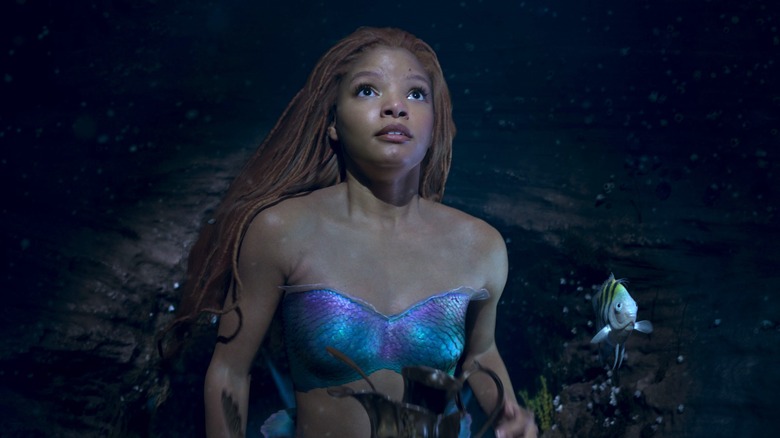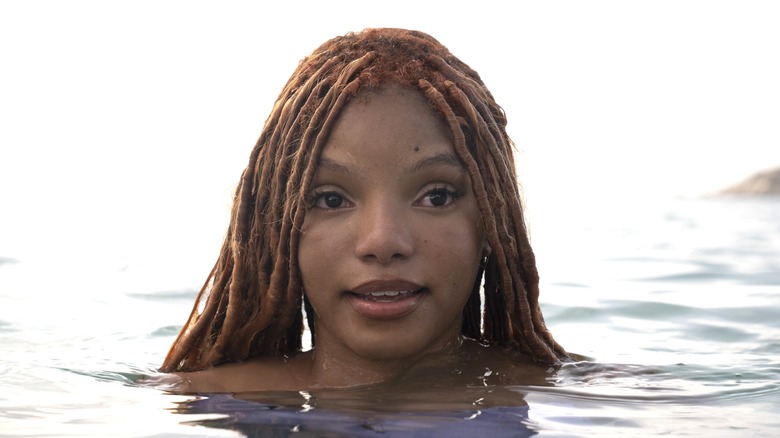The 'Profound' Reason The Little Mermaid Director Agreed To Do The Disney Remake
Nearly four years after Disney found its Ariel in Halle Bailey for the live-action version of "The Little Mermaid," the film is finally making its splash in theaters.
"The Little Mermaid," of course, first became popular with Disney fans with their animated version of Hans Christen Anderson's 1837 fairy tale, but the live-action announcement brought out complaints from intolerant viewers claiming that the title character shouldn't be Black. A few months after the announcement, Bailey broke her silence on the "Little Mermaid" outrage, then dove into the production.
In an interview with IndieWire, "The Little Mermaid" director Rob Marshall said that the film is a reflection of the fear and intolerance that Andersen himself questioned of society when he wrote the original story in the 1800s. And since the film is rooted in that concept, Marshall noted, now is as good a time as any to remake the film.
"I thought, why are we making this film now? There's no reason to make this film unless it has something important to say," Marshall told IndieWire. "It was there in the 1800s, 1830s, when it was written, it's not fearing someone that's different than you. It's about tolerance and the passion and what [Ariel] goes through to build that bridge to that other world. I found it very profound, very moving."
As such, Marshall forged his new version of "The Little Mermaid" and in the process, expanded the narrative a bit. "I wanted to keep the elements of the piece, but why not give it some more depth?" the director told IndieWire of his thought process.
Marshall looked to the original source material to expand Ariel's world
In "The Little Mermaid," Ariel lives under the sea with her sisters and their father, King Triton (Javier Bardem). Triton's overprotective nature is preventing Ariel from exploring the land above, until she saves Prince Eric (Jonah Hauer-King) from a shipwreck. Desperate to be part of Eric's world, Ariel strikes a deal with the evil sea witch, Ursula (Melissa McCarthy), to swap out her mermaid fins for legs so she can walk the land to find him. But Ursula's shady deal also requires Ariel to give up her voice, which she will lose forever is she doesn't share the kiss with her true love in three days.
"The Little Mermaid" will feel very familiar to its viewers as Bailey and Daveed Diggs — who voices Sebastian the Crab — sing iconic tunes like "Part of Your World," "Under the Sea," and "Kiss the Girl," while McCarthy also belts out "Poor Unfortunate Souls." But since the runtime of the live-action version is 2 hours and 15 minutes — much longer than the animated version, which runs a breezy 83 minutes — Marshall took the opportunity to expand the narrative by fleshing out the original source material a bit more.
"Personally, I went back right away to the Hans Christian Andersen tale, that's where this all came from. I wanted to do a re-imagination of the actual story," Marshall told IndieWire. "The opportunity that you have with a live-action film — which is very different than an animated film, it's a very different genre — is you can bring more scope, more depth, more emotion to the piece."
"The Little Mermaid" is now in theaters.

